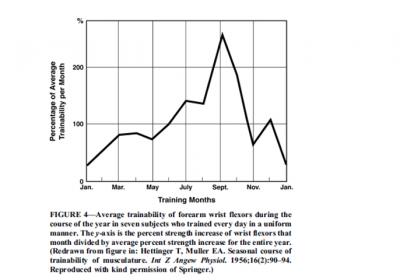T-Slow, a fair response, thank you. And I agree that we should look past the names of diets and try to dig through what science and underlying biochemistry of what is occurring when specific foods are consumed. A discussion of the science is more refreshing and honest then a knee jerk reaction to a name.
There are so many commonalities between people’s views on diets, it becomes clear there is an obvious evolutionary reason why certain things are healthy while synthetic vitamins and foods are not. That means avoid the plastic material known as margarine, in favor of much healthier butter. Avoiding nitrate full meats in favor of local grass fed meats, which have been shown to be higher in minerals (zinc) and CLA and omega 3’s. No doubt fruits and veggies are needed in abundance in ones diet, especially organics if you don’t enjoy exposing your body to pesticides and lower nutrient content. And the havoc that high GI carbs can play on our physiology is starting to become abundantly clear. The goal of the paleo diet is to replace the deprived nutrient food that we eat today with the nutrient food our ancestors consumed in abundance. The understanding of how synthetic and modern foods differ from the foods of our ancestors is important.
The soil has less minerals and nutrients in it from factory farms. Our fruits and vegetables have less overall nutrients then they would have just 100 years ago.
Cows are fed grains, an unnatural food for them to fatten them up, it kills their immune system so they are pumped full of antibiotics. Their omega 3 content and zinc is much lower.
Pasterized milk is a shadow of what raw milk is nutrient wise
Those are the easy ones to name a few.
Its become abundantly clear to me that when foods need to be infused with some sort of vitamin that it has been deprived of its naturally occurring sources. Yet we ignore the processes which naturally deliver the highest bio-available nutrients the way our ancestors got them. Its no wonder that our ancestors were said to be more muscular, leaner and healthier than we are today. They must have been doing something right.
Grass fed Organ meets (insanely high in vitamins and minerals)
grass fed local meat
Organic fruits and veggies
Some seeds and nuts
fermented foods
A new study published on the myth of saturated fats causing CVD
http://www.njmonline.nl/getpdf.php?t=a&id=10000756
I’m going to switch gears a little bit and bring what I’m saying back to reality.
As an athlete and a person who works with athletes I have both tried and recommended the ideology behind this way of eating. If we think in terms of optimal health and how a well oiled machine can accomplish more when everything it needs is present, when your physiology is working efficiently things tend to go really well. The increased natural nutrients tend to improve all hormone levels and increase sensitivity to insulin.
For athletes, there is an obvious need for higher carbohydrate intake to recover muscle glycogen. The amount recommended in textbooks are a little crazy, unless people plan on running marathons on a daily basis (6-9g/kg). But like I originally said, a good post workout shake will take care of those needs. And as an athlete you can opt to include some higher GI fruits and veggies to help top off what the shake missed. Sweet potatos, maybe the occasional rice, things like that.
I’ve been eating pretty close to this for some time now, and have never felt better, nor have my workouts gone so good. I’ve had 5 national level track athletes switch to this type of eating, couple middle distance, jumpers and sprinters and they have all enjoyed the benefits and it has worked quite well for everyone. Each person tends to find their groove around certain food types and certain ways of eating. I strongly believe that the diet for optimal health is the best diet athletes can enjoy.
